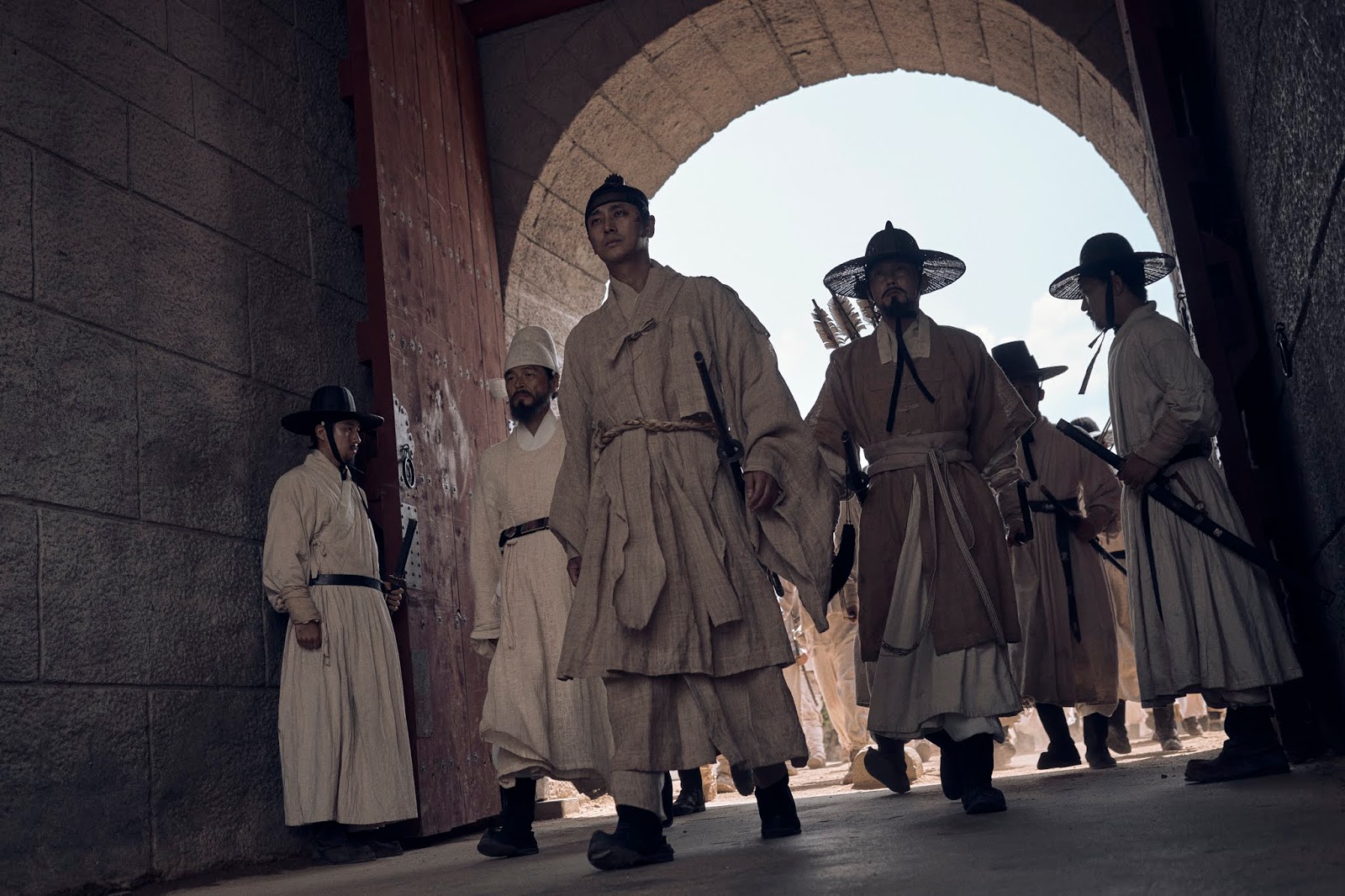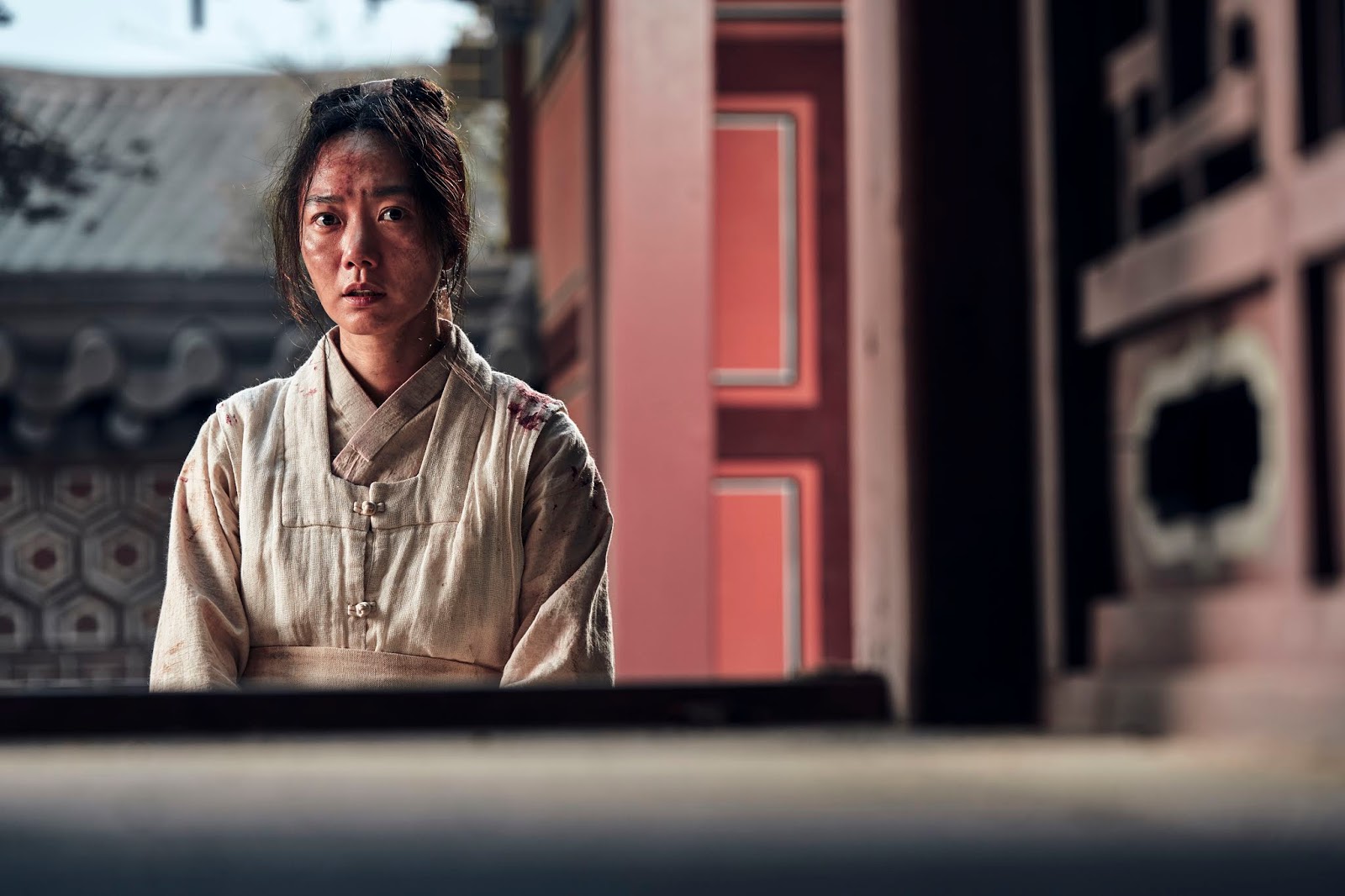In Joseon’s highly stratified and unequal society, we see corrupt power’s impact to the everyday lives of people. The vulnerable are always the lower classes—their lives are given no value, and they are the last to experience justice.
This is how we’ve come to know period K-dramas. Throw in some assassination, treason, a civil war and your episodes are all set. But reimagine the genesis of the living dead in the Joseon era? Suddenly everything about “Kingdom” becomes entirely different.
The series boasts of beautiful cinematography, with every detail faithful to Korea’s rich history. Its characters are given dimension. They are not just guided by sheer heroics, but instead are propelled by the complexity of their own values and beliefs. Every person in the show is given their own story that enriches the narrative as a whole. We don’t only focus on each one’s survival, we are given a glimpse of the rationale of their actions.
Here’s a list of everything I loved about the second season of “Kingdom”—with countless spoilers ahead:

Embedded layers of history
If we were to piece together the setting’s timeline, it would lead us to the latter years of the 1590s. The historically recorded mysterious illness during the Joseon era was reimagined by screenwriter Kim Eun-hee into a zombie virus. The story shows the struggles of a war-stricken country, the inequality among social classes, and the unending conflict for the command of power. And if history may say so better: Plagues follow bad leadership.
Another thing to get excited about: The season finale’s introduction of the stranger from the North. This might mean the series get to explore antiquity’s Sino-Korean relations. We can only speculate, but perhaps the battalion sent by the Ming Dynasty to ward off Japanese invaders could also have been afflicted by the plague, which eventually inspired the military tactic devised by Cho Hak-ju.
If the second season surpasses the popularity of the first (which it sure will), the plague would most probably be shown as a global pandemic that the old world has to conquer in order to survive.

Army of the Undead
There’s really nothing more annoying than a show that asks for your full attention but is unwilling to spare any logic nor puts in the effort to tell the origin of the phenomenon that moves its central plot. Unlike the typical zombie stories, “Kingdom” doesn’t settle on accepting the living dead as a mere unexplainable mystery. It seeks the truth behind the plague—how the resurrection plant was discovered, what caused the contagion, and who was patient zero.
Sure, it likes to tease, but this is the kind of show that does not waste your time with speculations. “Kingdom” is loyal to the principle of Chekhov’s gun—where you can expect every detail to come into play, and every passing anecdote gets fleshed out in the next chapters of the story.
“Kingdom” then takes us into Lord Ahn Hyeong’s conscience, revealing the implied events from “three years ago” that we first encounter in the previous season. In the province of Sumang (where hunter Young Shin is originally from), Hak-ju proposes that the commoners be turned into a living weapon against the Japanese.
Joseon’s Chief State Councilor is convinced that this is their strongest line of defense against the invaders. It’s cruel, it’s inhumane, but he thinks it’s their last chance for survival. He is willing to sacrifice the people of Sumang, turning them into the undead to ward off the impending invasion. He gets his way and it is with this victory that he believes he and his clan are worthy of ruling the kingdom of Joseon.

A badass Ju Ji-hoon
His father was the first one to tell him this: He must survive. So when Prince Chang had to face the monster his father had become, there was great emotional expanse to overcome. But in the end, there is a feeling of defeat as the Chief State Councilor uses this encounter to twist the truth and prove Chang’s crime of treason.
Perhaps it is in the third episode of the new season where the audience can really feel the unfaltering loyalty of the people to the king. Lord Ahn Hyeon is pierced through by countless of bullets as he tried to open the doors to the truth, and later on sacrifices the dignity of his flesh to reveal the dangers of the plague.
Now with the army to ensure his survival, Prince Chang is emboldened to take on Hanyang. There’s no sense in denying it: We love a crown prince who marches into the capital city unafraid (watch episode 5).
Joseon’s Chief State Councilor is convinced that this is their strongest line of defense against the invaders. It’s cruel, it’s inhumane, but he thinks it’s their last chance for survival. He is willing to sacrifice the people of Sumang, turning them into the undead to ward off the impending invasion. He gets his way and it is with this victory that he believes he and his clan are worthy of ruling the kingdom of Joseon.

A badass Ju Ji-hoon
His father was the first one to tell him this: He must survive. So when Prince Chang had to face the monster his father had become, there was great emotional expanse to overcome. But in the end, there is a feeling of defeat as the Chief State Councilor uses this encounter to twist the truth and prove Chang’s crime of treason.
Perhaps it is in the third episode of the new season where the audience can really feel the unfaltering loyalty of the people to the king. Lord Ahn Hyeon is pierced through by countless of bullets as he tried to open the doors to the truth, and later on sacrifices the dignity of his flesh to reveal the dangers of the plague.
Now with the army to ensure his survival, Prince Chang is emboldened to take on Hanyang. There’s no sense in denying it: We love a crown prince who marches into the capital city unafraid (watch episode 5).

Wrath of the Queen
The Haewon Cho clan conspired to keep the power from going to Lee Chang. It is because of their lust for power that the epidemic started once again: The state councilor and second queen revived the fallen king into a flesh eater, giving them more time to secure their royal position with a male heir.
But this is where it gets tricky. The young queen has kept her miscarriage a secret and rounded up a handful of pregnant women in her estate in hopes of snitching a male child. The royal council was close to revealing the schemes at play but their efforts ended up as a futile attempt to overthrow the clan.
When Hak-ju found out his daughter was willing to name a child outside their bloodline the crown prince, he only had one thing to say: “This is not how I want to rebuild this country.” Suddenly he’s not the most sinister person on the show anymore. While his idea of nationalism may be twisted and ruthless, he has a vision he wants to enact for the kingdom as it faces uncertainty and turbulence from the years of war.
But the queen has her eye on vengeance to prove her worth to her family. Surpassing her father’s personal ambitions, she wants to be recognized for her inviolable presence, an acknowledgement of her own virtuosities. She manages to outsmart them all—with countless murders waged under her command.
When pushed to the back of the wall, the young queen was ready to face death more than defeat—hell is unleashed inside the palace as the crown prince edges on claiming the throne. Their fight for survival reaches the end where it all began: the palace.

But the queen has her eye on vengeance to prove her worth to her family. Surpassing her father’s personal ambitions, she wants to be recognized for her inviolable presence, an acknowledgement of her own virtuosities. She manages to outsmart them all—with countless murders waged under her command.
When pushed to the back of the wall, the young queen was ready to face death more than defeat—hell is unleashed inside the palace as the crown prince edges on claiming the throne. Their fight for survival reaches the end where it all began: the palace.

It’s all set up for a third season
The change in pacing in the latter half of the sixth episode was quite alarming. At first I thought it would’ve been a good move to have ended the season with Prince Chang disappearing into the daylight—with the mystery of the future trodding along his exit. But as the story fast-forwards to seven years later, it takes an anti-climactic turn—a turn of events that could actually nullify the greatness of the entire show. If there was a boring bit ever shown in “Kingdom,” this would be it.
But the reappearance of Ju Ji-hoon on the screen changes that. Now a commoner, the former crown prince has spent the past years learning more about the epidemic, and news of its resurgence causes alarm.
Together with Seo-bin, they travel to the northern provinces where the resurrection plant has multiplied in number. As they set out to find who is behind all this, they are attacked by the undead in an abandoned town—and these flesh-eating monsters seem to be trained to hunt.
It’s at this point where actress Jun Ji-hyun proves she knows how to make an entrance in just two seconds. Dressed in what seems to be pirate clothing, she wears a ruthless aura around her. Is she out for revenge? Is she intent on starting another plague?
There’s no way for us to find out until the next season of “Kingdom” drops.
Photos courtesy of Netflix. “Kingdom” season two is now streaming online.

No comments